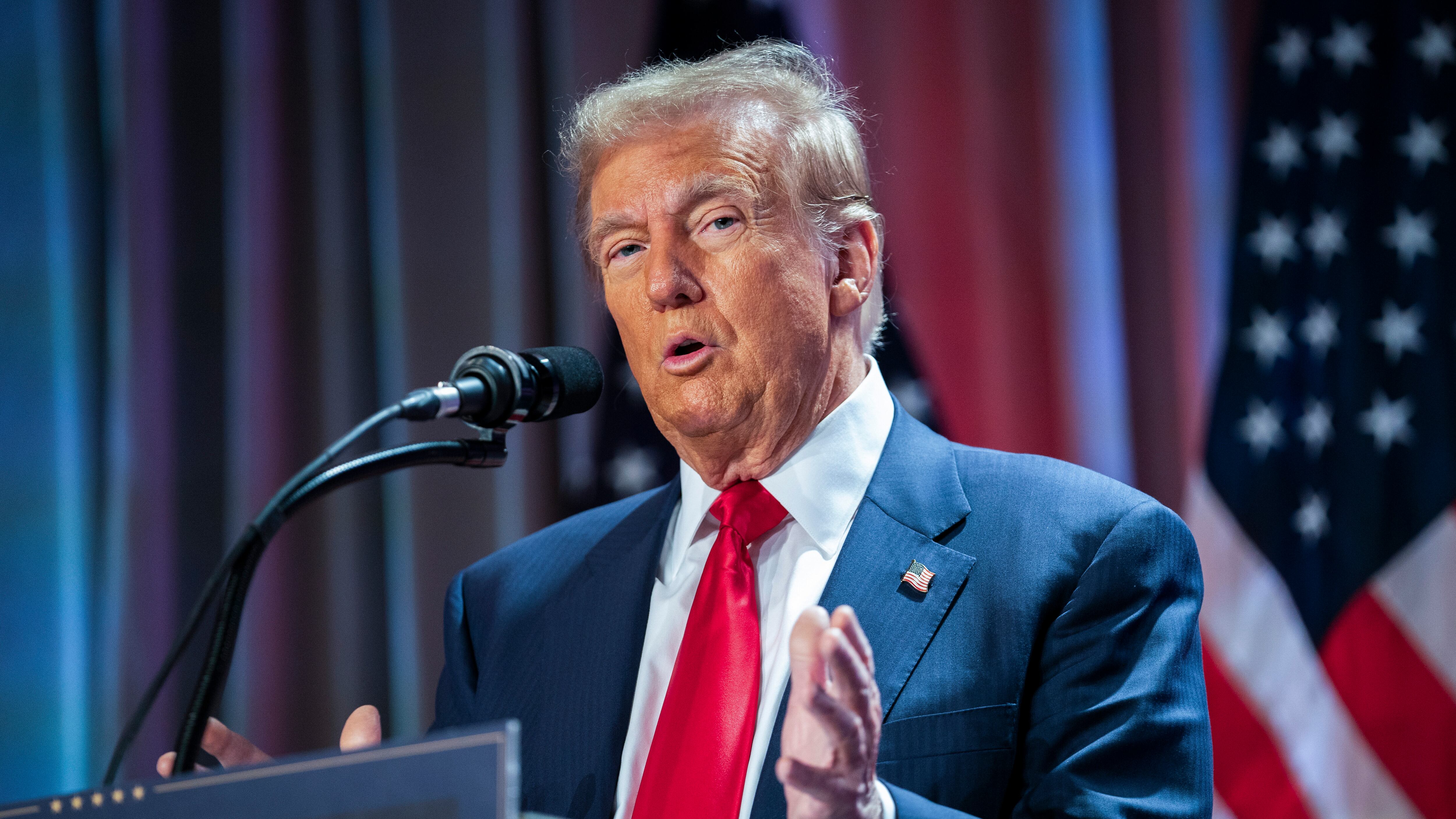The unexpected announcement by President-elect Donald Trump on Saturday night that he will nominate Kash Patel as the director of the FBI sets the stage for a new round of turmoil in a law enforcement agency tasked with protecting the homeland and investigating federal crimes.
PUBLICIDAD
Patel, a staunch ally of Trump with plans to restructure the institution he has been appointed to lead, is a study in contrasts to the current reserved director who preaches a mantra of "keep calm and address the difficult."
PUBLICIDAD
By choosing Patel over other more conventional contenders, Trump is once again proving his ability to make the Senate bend to his will by confirming some of his most controversial nominees.
Christopher Wray was appointed director by Trump in 2017 and technically has three years left in his 10-year term.
This term is aimed at ensuring that the directors of the country's most prominent federal law enforcement agency can operate free from political influence or pressure. Presidents typically, but not always, have retained the director who was in office when they assumed the presidency, as President Joe Biden has done with Wray.
But it is also the case that all FBI directors serve at the pleasure of the president; in fact, Wray was nominated after Trump fired the FBI director he had inherited when he took office, James Comey.
The announcement means that Wray can resign from his position, in accordance with Trump's apparent wishes, or wait to be fired once Trump takes office in January. Either way, the selection of a successor is a clear indication that Wray's days are numbered. If Wray leaves before Patel can be confirmed, the interim director position will presumably be filled by the current Deputy Director of the FBI.
The Republicans may have won control of the Senate, but their confirmation is not guaranteed.
Undoubtedly, there are legislators who support Trump's desire for a radically reformed FBI, especially after federal investigations resulted in two separate charges against the president-elect, and who share his sentiment that the enforcement of federal law has been "turned into a weapon" against conservatives.
But Patel will likely face deep skepticism during his confirmation hearings about his stated plans to get rid of the "conspirators" against Trump, and his claims that he will shut down the FBI headquarters on Pennsylvania Avenue in the nation's capital and send the thousands of employees working there to "chase criminals" across the country.
And even though Trump may try to rely on a loyalist willing to seek retaliation against those he perceives as his adversaries, that prospect will likely give pause to senators who believe that the FBI and the Department of Justice should operate free from political influence and not be tasked with carrying out a president's personal agenda.
Anticipating the potentially tough confirmation battle ahead, Senator Chris Coons, a Democrat from Delaware, wrote on social media on Saturday night: "Kash Patel will be another test of the Senate's advice and consent power. Patel needs to prove to the Senate Judiciary Committee that he has the proper qualifications and, despite his past statements, will prioritize the public safety of our nation over a politically retaliatory agenda."
Trump has also raised the possibility of using recess appointments to push his nominees through the Senate.
Patel has made a series of bold statements about his plans for the federal government, but most of these proposals will require the support and acceptance of other officials and will almost certainly encounter considerable resistance. His claim that he will reduce the footprint and authority of the FBI contrasts with the traditionally adopted stance by bureau leaders, who invariably state that they want more resources, not less.
He talked about trying to get rid of the "conspirators" against Trump and going "after the people in the media who lied about American citizens who helped Joe Biden manipulate presidential elections," either criminally or civilly.
According to the FBI's own guidelines, criminal investigations cannot be based on arbitrary or unfounded speculation, but must have an authorized purpose to detect or disrupt criminal activity. And while the FBI conducts investigations, the responsibility for bringing federal charges or filing a lawsuit on behalf of the federal government lies with the Department of Justice. Last week, Trump said he intended to nominate former Florida Attorney General Pam Bondi to serve as Attorney General.
Patel's proposal to crack down on information leaks from government officials to the media is an indication that he wants the Department of Justice to undo its current policy prohibiting the secret seizure of reporters' phone records in leak investigations. That policy was implemented by Attorney General Merrick Garland after a scandal over the disclosure that federal prosecutors had obtained subpoenas for journalists' phone records.
Patel has spoken about untangling the FBI's intelligence collection operations, now a central function of the bureau's mandate, from the rest of its operations. It is not clear if he intends to fulfill that promise or how it will be received at a time when the United States faces what authorities consider to be a heightened threat of terrorism.
It also says that he wants to close the legendary FBI headquarters on Pennsylvania Avenue and send the employees who work there all over the country. It is not clear if this is a hyperbolic statement that simply reflects disdain for the "deep state" or something he will actually try to implement, but how that will look in practice remains a huge unknown.
